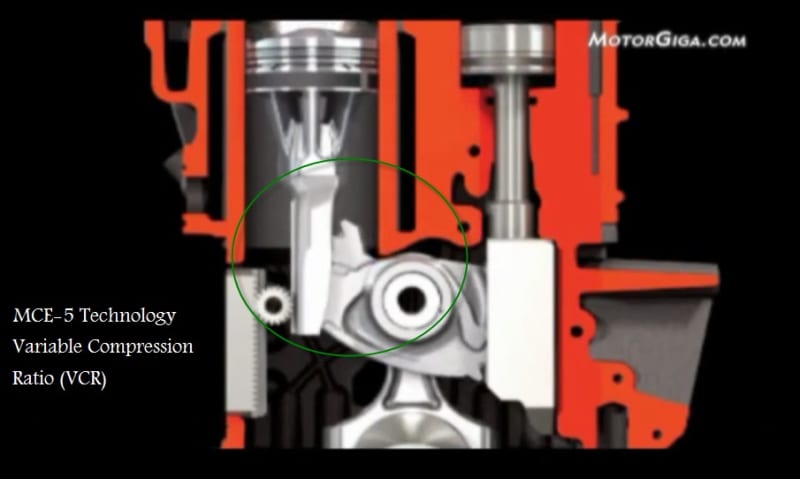Synopsis:
From the viewpoint of the power to engine weight ratio, 2-stroke engines have at least 40% better performance than 4-stroke engines but they produce undesirable emission levels with poor lubricating management. Therefore, it will be the main challenge in the double acting ICE`s. Double acting Internal Combustion Engine (ICE) having combustion chamber at each side of the piston would be a willing mechanism for the future engines because of improving the fuel efficiency of the ICE`s and passing all of the emission legislation which are the main goals of all car companies.
Background: (Fig.1)
In this invention, the MCE-5 technology in which Variable Compression Ratio (VCR) was used as a control parameter for increasing the efficiency of the engine at any working condition, was employed. The MCE-5 technology is promising VCR mechanism for no far future engines since it`s durability, cost and manufacturing problems have been solved, while it shows better performance. For instance, its 2.2 liter engine performance is comparable to a 5.4 liter Ford engine.
Our invention: (Fig.2)
In this invention the lubricated area is focused to the contact area of the piston and the cylinder wall. In the linear slider rod which connects the piston to the crank shaft, a hole is considered with a smaller pipe in the middle through which the oil is pumped. The oil is passing through the small holes considered at both end side of the piston, just below the oil rings. After lubricating and cooling the piston, the oil is sucked through the bigger holes considered in the middle part of the piston and passed out to the crank case through the space of coaxial pipe and slider hole. By using this mechanism the contacting area of the piston and cylinder wall is lubricated.
Results:
1- Lubricating of the contact area properly.
2- Enjoying the bright future of the MCE-5 technology (No durability, cost, manufacturing,… problems).
3- Doubling the output power with lower engine weight.
4- At most, 2-3% reduction in efficiency due to friction losses.
The final stroke of the engines would be: (Fig.3)
Upper chamber: -combustion -expansion -exhaust -intake -compression
Lower chamber: -compression -combustion -expansion -exhaust -intake
All the above mentioned information are adapted from different authentic references. Please do not hesitate for further information.
Like this entry?
-
About the Entrant
- Name:Farhad Khoshabadi
- Type of entry:teamTeam members:Dr Rahim Khoshbakhty sarai
- Software used for this entry:Solid Works
- Patent status:pending








